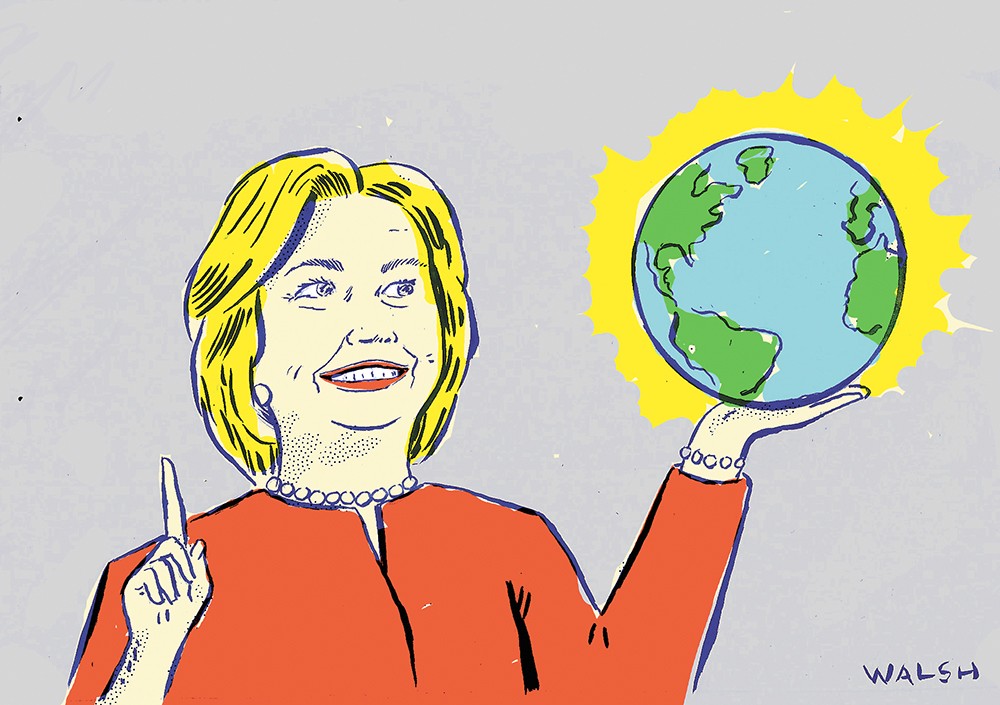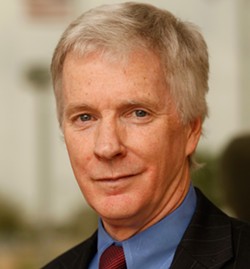Foreign policy issues seldom decide presidential elections. We all should be paying attention this time, however, because the outcome will have a significant impact on America's place in the world, and the world itself.
Out of the wreckage of World War II came a new world order, largely designed and led by the United States. Its elements included the United Nations, the Marshall Plan to rebuild Europe, and the Bretton Woods Agreement which created a U.S.-led global financial system and established two institutions that play a major role in the world's economy today: the International Monetary Fund and the World Bank. NATO soon followed. The 70 years since the end of WWII have certainly not been ones of perfect harmony, but after two global conflicts in slightly more than three decades, the second half of the 20th century was immeasurably more peaceful than the first under the leadership of the U.S.
In 1947, Harry Truman enunciated what became known as the Truman Doctrine: "It must be the policy of the United States to support free people who are resisting subjugation by armed minorities or outside pressures." Successive U.S. presidents, Republican and Democratic, followed a doctrine of engagement in international affairs. In the Middle East, my area of focus during a long Foreign Service career, presidents from Truman through George W. Bush proclaimed it an area of vital interest to the United States and vowed to protect those interests and our friends. The doctrine of engagement has produced some spectacularly bad results, but overall the world was a better, safer place because of U.S. leadership.
Without much fanfare or notice, the Obama Administration has moved in a direction different from his post-WWII predecessors. There will be no Obama Doctrine of global engagement. The Atlantic magazine story with that title describes not a doctrine in the spirit of Truman, Eisenhower, Reagan or Clinton, but a decision to limit American engagement, especially in the Middle East. This is a fundamental departure from the philosophies of past presidents. President Obama has been openly derisive of the foreign policy establishment (of which I am a longstanding member) and its "playbook." He has referred to Egypt and Saudi Arabia as "so-called allies," and he has been critical of "free riders" in NATO.
In all of this, Obama and Trump echo each other. The two may not agree on much, but they seem to share the view that the era of American global leadership is over. Unfortunately, events in recent years prove that the international bus is unlikely to stay on the road if we are not steering. States are collapsing in the Middle East, and in the open space this leaves, truly terrible non-state actors like the Islamic State and Iranian-backed Shia militias have emerged. As the world witnesses the worst refugee crisis in 70 years, we are on the sidelines, even though the European Union has been weakened, to the delight of Russia.
As Secretary of State, Hillary Clinton was my boss when I was ambassador to Afghanistan. She is smart, tough and focused, and she knows how the world works. She believes in U.S. leadership in the world and knows how to manage both allies and adversaries. I am confident that as president, she would re-engage the United States in international affairs in a manner that safeguards our interests and supports the cause of global security and stability. In recent years, the mantra that we can't fix everything has become an excuse for not trying to fix much of anything. Mrs. Clinton will change that. I don't know what Donald Trump will do. Based on what he has said so far, I don't want to find out.♦
Ryan Crocker, born in Spokane, served as U.S. Ambassador six times: in Afghanistan (2011-12), Iraq (2007-09), Pakistan (2004-07), Syria (1998-2001), Kuwait (1994-97), and Lebanon (1990-93). In 2009, President George W. Bush awarded Crocker the Presidential Medal of Freedom.



